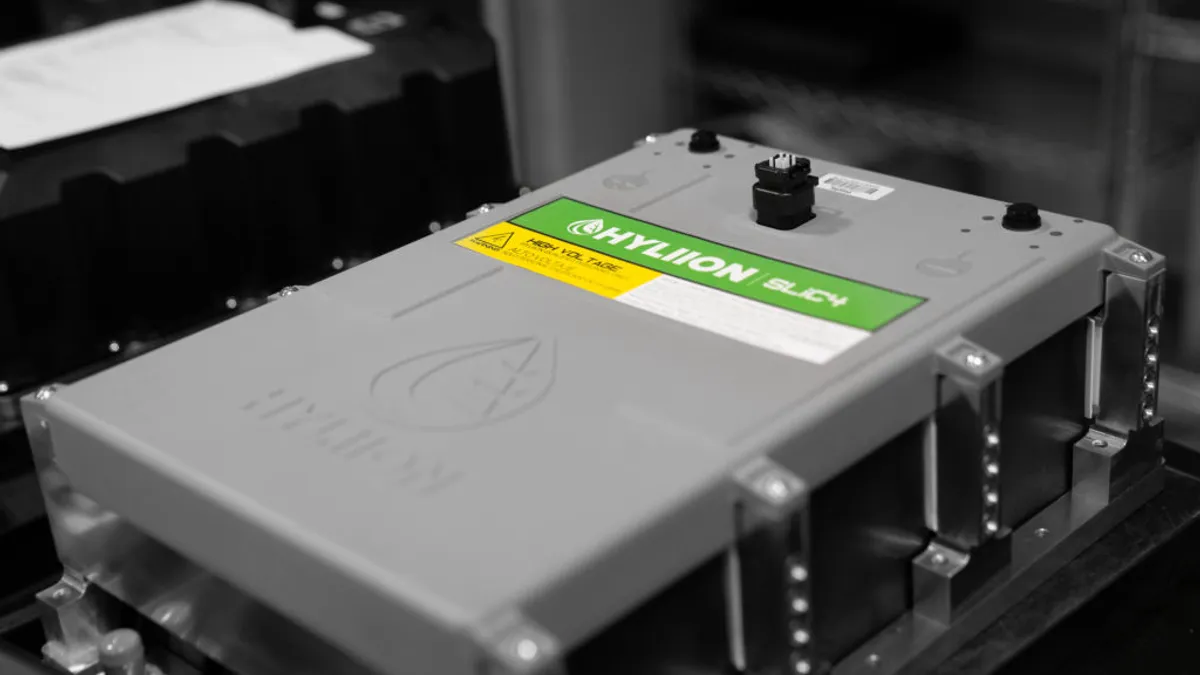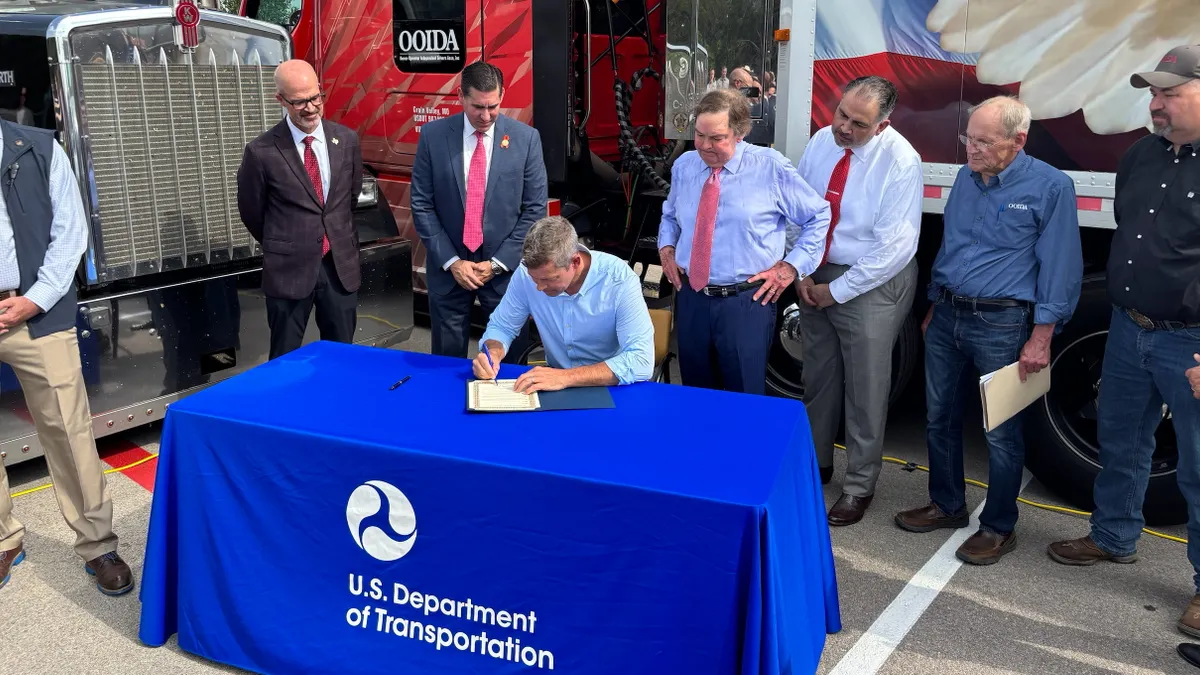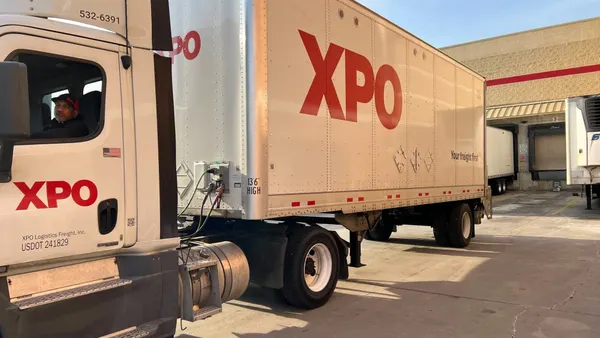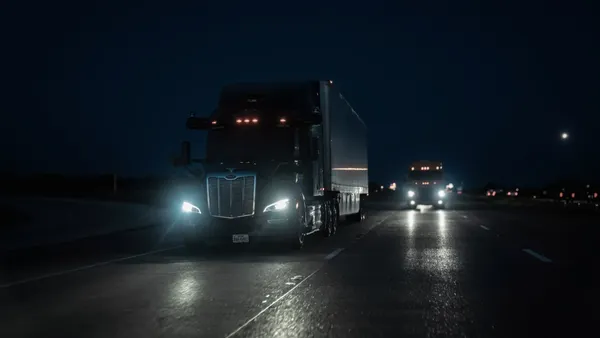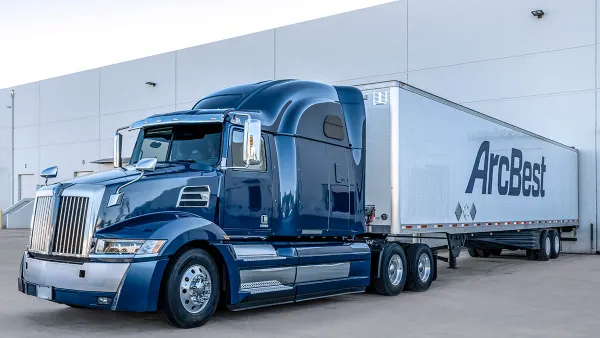Dive Brief:
- Hyliion plans to implement "major enhancements" to its hybrid product in the second half of this year, then continue to introduce "future rolling improvements," CEO Thomas Healy said on the company's earnings call last week. The OEM plans to begin ramping up production of these systems before year's end.
- Design changes and system improvements were meant to help Hyliion scale production, Healy said during an earnings call in January. That includes improved packaging for easier installation and manufacturing, as well as the company's next-generation battery module, he said.
- Hyliion's hybrid improvements were previously delayed "because of learnings that came from the design process and added testing and validation to the development cycle," Healy said. The OEM conducted cold-weather testing in Minnesota during Q1, a method it also plans to use on its Hypertruck ERX electric powertrain next winter, Healy said.
Dive Insight:
As much momentum as electric trucks have in the industry, hybrid trucks never quite caught on. Hyliion shipped 10 hybrid units in Q1 but has not yet recognized revenue, CFO Sherri Baker said on the call last week.
Product improvements should make the hybrid systems more attractive. And Hyliion is leaning on partnerships to roll those out.
"At this stage in Hyliion's lifecycle, we are working with our customers to continually refine and improve our Hybrid product offering," Baker said. "It's still a bit of an iterative process, as the real-world, on-road use by our customers is the best way to truly understand how these powertrains perform in various conditions on the roads."
Delivering the improved hybrid systems to fleets in the back half of this year will help the OEM recognize revenue, Baker said. Shipment of the trucks is necessary, but not sufficient, to recognize revenue, per Hyliion's 10-K filing.
Partnering with fleets is the strategy most OEMs take when bringing a product to market. In fact, numerous fleets that use Hyliion's hybrid solution are also members of its Hypertruck Innovation Council. That group — which includes Anheuser-Busch, NFI, Penske Truck Leasing, Werner and others — will be the first to operate the truck and provide feedback.
"We believe our Hypertruck Innovation Council, along with others outside the council, is the most professional and reliable way to generate demand for our powertrains," Healy said last week.
And, he added, the makeup of the council's membership shows the interest Hyliion does have in its hybrid solution can drive demand for its all-electric product.
Hybrid can be an option for fleets that want to increase sustainability in the near term, as fully electric trucks make their way to commercialization. Some fleets, such as Wegmans, have opted to use more sustainable fuels with Hyliion's hybrid system.
Interest in natural gas — reusable and especially compressed, Healy said — is growing. That bodes well for Hyliion's bottom line.
"We will still have some new fleets coming into the mix, or a lot of new fleets coming into the mix, that will want to experience the technology ... first before being able to recognize revenue on it," Healy said. "We see that on that CNG application; it is a quicker process to do that."
Healy said numbers from the Department of Energy and others show RNG use in transportation fuels has grown 267% over the past five years. As of April 1, more than 157 RNG production facilities were in operation, with an additional 155 under construction or in development, Healy said.
Hyliion's hybrid and Hypertruck powertrains produce carbon-negative results, when fueled with RNG, Healy said. As fleets opt for more environmentally friendly operations, cutting carbon has become a priority.
But in terms of meeting that demand, Hyliion's production schedule has been delayed. While part of that has to do with redesign and testing, the supply chain adds challenges, too.
Healy said the OEM does "see supply chain risk" with some parts used in the hybrid and Hypertruck. It has been working with suppliers to match lead-time constraints, he said. Hyliion has also identified alternate suppliers or components, should they be needed.
But the battery supply chain, which is the source for several scaling concerns around electric trucks, does not pose the same issues to Hyliion.
Hyliion's batteries "are orders of magnitude smaller and lower cost" compared to traditional lithium-ion truck batteries, Healy said. So, the company expects to put more trucks on the road with fewer battery cells than competitors.
The new hybrid battery module has a lifecycle five-times longer that a conventional electric-vehicle battery, can hold more charge and can be charged faster.


